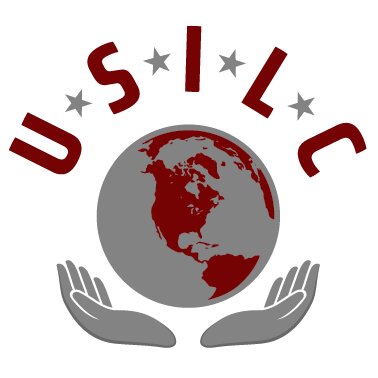Best Dependent Visa Lawyers in Alaska
Share your needs with us, get contacted by law firms.
Free. Takes 2 min.
Or refine your search by selecting a city:
List of the best lawyers in Alaska, United States
About Dependent Visa Law in Alaska, United States
A Dependent Visa in the United States, including Alaska, generally allows spouses, children, and sometimes other eligible family members to join or remain with a primary visa holder in the US. Dependent visas can be issued in connection with various types of primary visas, such as employment-based visas (H-1B, L-1), student visas (F-1), and others. These visas do not grant independent residency rights but allow dependents to stay lawfully with the principal applicant. The process is governed largely by federal immigration laws, although specific procedures may be influenced by local conditions or resources in Alaska.
Why You May Need a Lawyer
Navigating the Dependent Visa process can be complex. People often seek legal help for several reasons, including:
- Understanding eligibility requirements for dependents
- Assistance with document gathering and completing application forms accurately
- Dealing with requests for additional evidence or application delays
- Addressing inadmissibility issues or past immigration violations
- Advice for dependents seeking to work or study in the US while on a dependent visa
- Guidance related to changes in the primary visa holder's status
- Navigating complex family circumstances, such as custody or divorce
- Appealing decisions or responding to denial notices
- Legal representation during interviews or hearings
Because even minor mistakes can result in delays or denials, consulting with a qualified immigration attorney in Alaska is often advisable, especially in complicated cases.
Local Laws Overview
While Dependent Visa laws are federal, local factors in Alaska can affect your process:
- Federal Process: All applications are submitted under federal immigration laws, primarily administered by the US Citizenship and Immigration Services (USCIS).
- State-Specific Considerations: Alaska's remote location can influence processing times, especially for in-person appointments or interviews at field offices that may be located in Seattle or Anchorage depending on case specifics.
- Access to Legal Help: Immigration attorneys in Alaska may be fewer in number, but many offer remote consultations.
- Local Education and Employment: Dependents may have unique options related to local schools or employment that differ from other states, so understanding Alaska's labor and school policies is beneficial.
- Public Benefits: Dependency status does not automatically qualify individuals for state or federal benefits, and Alaska's public assistance programs may have specific eligibility requirements.
It is important to follow all local registration or reporting requirements which may apply especially for school-age children.
Frequently Asked Questions
What is a Dependent Visa and who qualifies for one in Alaska?
A Dependent Visa allows eligible family members of a primary visa holder to legally stay in the US. Spouses and children under 21 are typically eligible; qualifications depend on the type of the principal visa.
Can dependents work or study in Alaska on their visa?
In most cases, children can attend school, and some dependent visa categories, such as L-2 or certain E visas, may permit employment authorization. F-2 spouses generally cannot work.
Do I apply for a Dependent Visa in Alaska or from my home country?
Most dependents apply from outside the US, though in certain cases, status adjustments are filed within the US. Alaska does not have separate application procedures.
What documents are needed for a Dependent Visa application?
Documents typically include proof of relationship, a valid passport, visa application forms, and evidence of the primary applicant's legal status. Additional documentation may vary based on circumstances.
How long does the Dependent Visa process take in Alaska?
Processing times vary by visa type and USCIS workload. Some visas may take several months. Geographic location can influence appointment scheduling.
Does Alaska have any special requirements for Dependent Visa holders?
No. Alaska follows federal immigration law, although local registration or health requirements may apply for school-age children or those accessing certain services.
What happens if the primary visa holder's status changes or ends?
Dependent visa status is directly tied to the primary visa. If the principal's status ends or changes, dependents may lose their status as well.
Can dependents apply for permanent residency while in Alaska?
In some cases, dependents are eligible to apply for adjustment of status to become permanent residents if the primary applicant is eligible and files accordingly.
I have legal issues such as a divorce. How does this affect my dependent visa?
Divorce or changes in custody can affect dependent status. Legal advice is essential to address complex family situations that may impact visa validity.
How can I find a qualified immigration lawyer in Alaska?
You can search for licensed immigration attorneys through the Alaska Bar Association or national directories. Consider attorneys with specific experience in family and immigration law.
Additional Resources
Here are some resources that may be helpful for those seeking information or legal advice regarding Dependent Visas in Alaska:
- US Citizenship and Immigration Services (USCIS)
- US Department of State - Bureau of Consular Affairs
- Alaska Bar Association - Lawyer Referral Services
- Local non-profits and immigrant advocacy organizations in Anchorage and other cities
- Public libraries for information on immigration law and support resources
Consulting with a local or remote attorney or legal non-profit can provide personalized guidance based on your case.
Next Steps
If you or your family are considering applying for a Dependent Visa in Alaska, here are recommended next steps:
- Review your eligibility based on your relationship to the primary visa holder and the type of visa involved
- Gather all necessary documents, including passports, birth or marriage certificates, and proof of the primary applicant's status
- Consult with an experienced immigration attorney, especially if your situation involves complex family dynamics, legal concerns, or previous visa issues
- Prepare your application carefully and follow all instructions from USCIS or the relevant consulate
- Stay informed about timelines, keep copies of all submissions, and check status updates regularly
- If complications arise, such as a request for additional evidence, seek legal advice promptly
Seeking professional legal guidance can help you navigate the process smoothly and avoid common pitfalls that may delay or jeopardize your Dependent Visa application in Alaska.
Lawzana helps you find the best lawyers and law firms in Alaska through a curated and pre-screened list of qualified legal professionals. Our platform offers rankings and detailed profiles of attorneys and law firms, allowing you to compare based on practice areas, including Dependent Visa, experience, and client feedback.
Each profile includes a description of the firm's areas of practice, client reviews, team members and partners, year of establishment, spoken languages, office locations, contact information, social media presence, and any published articles or resources. Most firms on our platform speak English and are experienced in both local and international legal matters.
Get a quote from top-rated law firms in Alaska, United States — quickly, securely, and without unnecessary hassle.
Disclaimer:
The information provided on this page is for general informational purposes only and does not constitute legal advice. While we strive to ensure the accuracy and relevance of the content, legal information may change over time, and interpretations of the law can vary. You should always consult with a qualified legal professional for advice specific to your situation.
We disclaim all liability for actions taken or not taken based on the content of this page. If you believe any information is incorrect or outdated, please contact us, and we will review and update it where appropriate.
Browse dependent visa law firms by city in Alaska
Refine your search by selecting a city.












